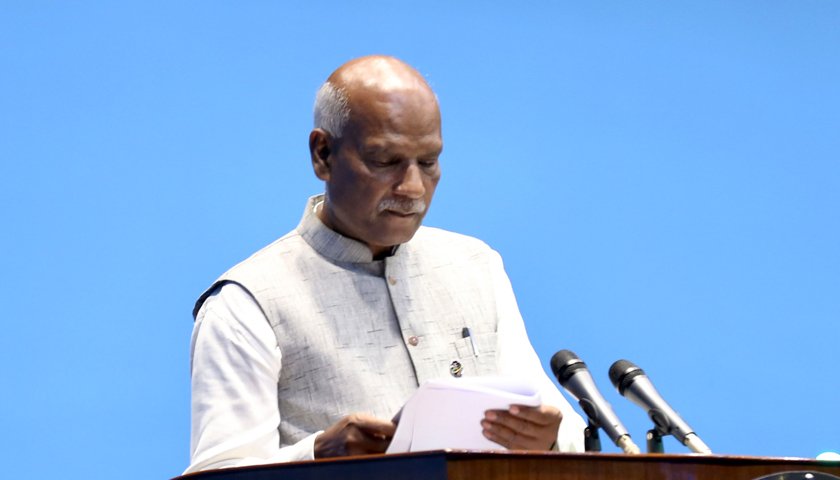Weltmeister: A cautionary tale of China’s electric vehicle industry

On Monday, Freeman Shen (沈晖 Shěn Huī), CEO of the Shanghai-based electric vehicle (EV) brand Weltmeister, issued an internal company letter announcing drastic spending cuts. The company will cut the salaries of managers by 50%, while other employees will take home 30% less. Bonuses have been canceled, and the next pay day has been postponed by a few weeks. In October, the company had already announced that management would be taking a voluntary 50% pay cut.
Advertisement 1
In his letter, Shen attributed the company’s troubles to COVID, the market downturn, supply chain challenges, and a sharp rise in raw material costs. “I hope you all understand,” Shen wrote to his employees, “and together we can survive the winter.” Where did things go wrong for Weltmeister? The answer is a cautionary tale of China’s EV industry.
Spontaneous combustion
Advertisement 2
Weltmeister was founded in Shanghai in 2015. From the start, the company’s executives decided to invest heavily in constructing factories. Weltmeister now has an annual production capacity of 250,000 EVs at facilities in Zhejiang and Hubei provinces, but they are far from running at full capacity.
Starting February 2017, Weltmeister completed four rounds of financing that brought in over 30 billion yuan ($4.19 billion) from investors like Tencent, Baidu, Hong Kong tycoon Li Ka-shing (李嘉誠 Lǐ Jiāchéng), the family of Macau gambling king Stanley Ho (何鸿燊 Hé Hóngshēn), and the prominent venture capital firm Sequoia China.
Advertisement 3
From early 2020, Weltmeister tried to follow in the footsteps of China’s three up-and-coming EV brands, NIO, XPeng Motors, and Li Auto — collectively referred to as “Wei Xiao Li” after the first characters of their Chinese names — and raise funds through an IPO. A plan to list on the Shanghai Stock Exchange fell through, but then the company tried, in June 2022, to list on the Hong Kong Stock Exchange. But so far, the IPO has not materialized.
In 2019, Weltmeister had a brief moment of glory when it reported the second-highest sales of EVs among Chinese manufacturers, behind only NIO. At the time, Weltmeister was even considered one of China’s “four little EV dragons,” along with the Wei Xiao Li brands. But in 2020, Weltmeister’s cars started exploding. In October of that year, Weltmeister recalled some of its vehicles due to a problem with spontaneous combustion, which the company attributed to faults in the battery production process. Chinese business news website 36kr counted at least 10 incidents of spontaneous combustion involving Weltmeister cars from 2020 onward.
That was the end of Weltmeister’s moment in the sun: In 2021, when NIO sold almost 100,000 units and BYD sold 730,000 units, Weltmeister sold only 44,000 units, an average of 3,600 units per month. This year, Weltmeister has not even officially announced its sales numbers, an ominous sign. However, the same 36kr article that noted the exploding cars also included a review of third-party sales data, and found that Weltmeister sold 3,003 units in September, and a mere 1,117 units in October. In the first three quarters of 2022, Weltmeister sold less than 30,000 units, according to the report.
Facing the abyss
According to Weltmeister’s prospectus submitted to the Hong Kong Stock Exchange, in the three years from 2019 to 2021, the company had total revenues of 1.76 billion yuan ($246.53 million), 2.67 billion yuan ($373.71 million), and 4.74 billion yuan ($663.62 million), respectively. But over these three years, the company had a cumulative net loss of no less than 17.43 billion yuan ($2.43 billion). Over this period, Weltmeister on average lost 160,000 yuan ($22,386) on each EV it sold.
In 2019, Weltmeister was spending 893 million yuan ($124.94 million), or 50.7% of total revenue, on research and development, but in stark contrast to BYD and the Wei Xiao Li brands, which are all increasing their expenditure on research and development, in 2021, Weltmeister spent 981 million yuan ($137.25 million) on research and development, or only 20.7% of total revenue. In 2021, BYD invested 10.6 billion yuan ($1.48 billion) in research and development. Furthermore, while the number of Weltmeister employees increased from 2,639 in 2019 to 3,952 in 2021, the company’s gross profit margin over the same period declined from 58% to 41%.
The takeaway
Weltmeister is a cautionary tale of how things can go wrong in the high-risk and high-cost EV business. Cut off from the capital markets, with its factories now almost empty, a history of exploding cars, and huge financial losses, Weltmeister is set to go down in flames, and its experience is a huge warning to the Wei Xiao Li brands — none of which are yet profitable, although they were all able to access the capital markets — and to all of China’s new EV companies.






























